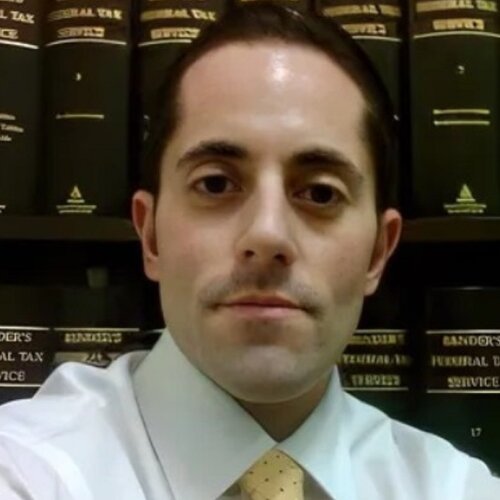Best Trusts Lawyers in Boston
Share your needs with us, get contacted by law firms.
Free. Takes 2 min.
List of the best lawyers in Boston, United States
About Trusts Law in Boston, United States
Trusts in Boston, United States are legal arrangements where a person (the grantor) transfers their assets to a trustee to manage and distribute them for the benefit of one or more beneficiaries. Trusts are governed by both state and federal laws, with each state having its own specific regulations regarding trusts. In Boston, the laws regarding trusts are primarily derived from Massachusetts state law. Trusts are commonly used for estate planning, asset protection, and charitable giving.
Why You May Need a Lawyer
While not required, seeking legal advice from a lawyer who specializes in trusts is advisable in certain situations. Some common scenarios where you may need a lawyer include:
- Creating a trust: An attorney can help you draft a trust document that accurately reflects your wishes and complies with the requirements of Massachusetts state law.
- Trust administration: If you have been named as a trustee, an attorney can guide you through the complex tasks involved in managing and distributing trust assets.
- Estate planning: Lawyers experienced in trusts can assist you in developing a comprehensive estate plan that utilizes trusts to protect your assets and provide for your loved ones.
- Disputes and litigation: In case of disagreements or conflicts related to trusts, an attorney can help you navigate the legal process and ensure your rights are protected.
Local Laws Overview
When it comes to trusts in Boston, several key aspects of local laws are particularly relevant:
- Massachusetts General Laws (MGL) Title II, Chapter 203E: This chapter specifically deals with the Massachusetts Uniform Trust Code, which governs the creation, modification, and termination of trusts in the state.
- Probate and Family Court: Matters related to trusts, such as trust administration, disputes, and litigation, are typically handled by the Probate and Family Court in Boston. Familiarize yourself with their procedures and requirements if you need to take any legal action.
Frequently Asked Questions
Q: What types of trusts are commonly used in Boston?
A: Common types of trusts used in Boston include revocable living trusts, irrevocable trusts, special needs trusts, charitable trusts, and testamentary trusts.
Q: How can a trust help with estate planning?
A: A trust can help with estate planning by allowing you to transfer assets to beneficiaries while minimizing estate taxes, avoiding probate, maintaining privacy, and providing for the management of assets in case of incapacity.
Q: Who can be a trustee?
A: Any individual or entity capable of managing trust assets responsibly can be a trustee. This can include family members, friends, attorneys, or corporate trustees.
Q: Can I modify or revoke a trust?
A: In most cases, revocable trusts can be modified or revoked by the grantor at any time. However, irrevocable trusts generally require court approval or agreement from all beneficiaries to make changes.
Q: What happens if I die without a trust in place?
A: If you die without a trust, your assets may go through probate, a court-supervised process. Your assets will be distributed according to Massachusetts intestacy laws rather than your specific wishes.
Additional Resources
Here are some useful resources for further information:
- Massachusetts Uniform Trust Code: https://malegislature.gov/Laws/GeneralLaws/PartII/TitleII/Chapter203E - The official text of the Massachusetts Uniform Trust Code.
- Massachusetts Probate and Family Court: https://www.mass.gov/courts/court-info/courthouses/probate-and-family-court-boston - Information about the Probate and Family Court in Boston, including forms and procedures.
Next Steps
If you need legal assistance with trusts in Boston, it is recommended to:
- Gather relevant documents such as wills, asset titles, and financial records.
- Research and compile a list of potential trust lawyers in Boston.
- Schedule consultations with lawyers to discuss your specific needs and determine the best fit.
- Select a trusted attorney who has experience in trusts.
- Work closely with your chosen attorney to navigate the legal process and meet your objectives.
Lawzana helps you find the best lawyers and law firms in Boston through a curated and pre-screened list of qualified legal professionals. Our platform offers rankings and detailed profiles of attorneys and law firms, allowing you to compare based on practice areas, including Trusts, experience, and client feedback.
Each profile includes a description of the firm's areas of practice, client reviews, team members and partners, year of establishment, spoken languages, office locations, contact information, social media presence, and any published articles or resources. Most firms on our platform speak English and are experienced in both local and international legal matters.
Get a quote from top-rated law firms in Boston, United States — quickly, securely, and without unnecessary hassle.
Disclaimer:
The information provided on this page is for general informational purposes only and does not constitute legal advice. While we strive to ensure the accuracy and relevance of the content, legal information may change over time, and interpretations of the law can vary. You should always consult with a qualified legal professional for advice specific to your situation.
We disclaim all liability for actions taken or not taken based on the content of this page. If you believe any information is incorrect or outdated, please contact us, and we will review and update it where appropriate.











